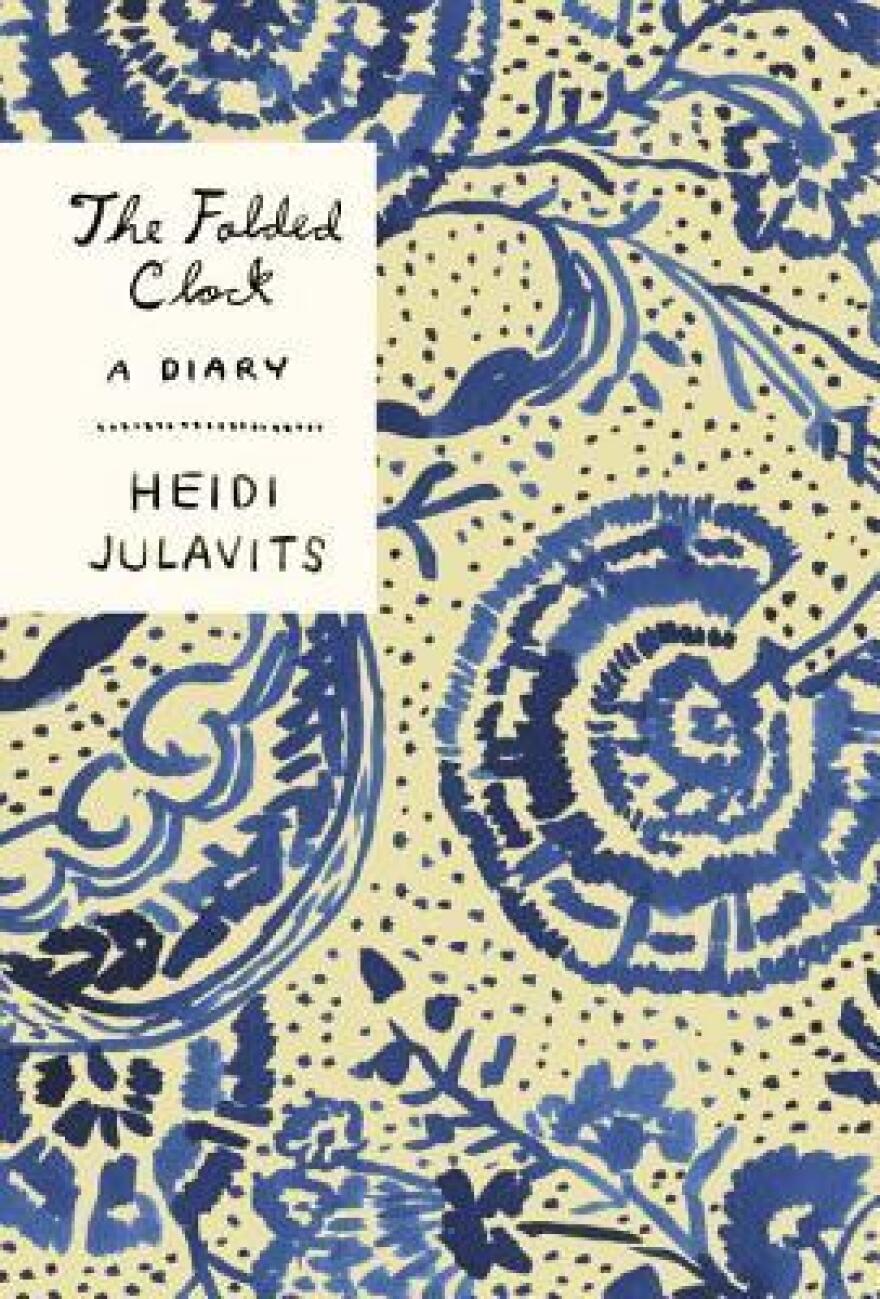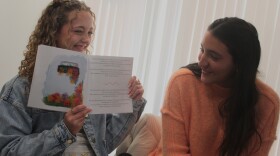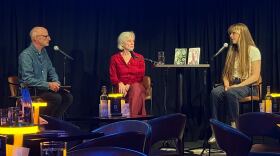The annual tsunami of best-of book lists is upon us - a time for critics to tell us what we should have been reading, watching and listening to in 2015. Here at Word of Mouth, we tend to root for the underdog...so we are proud to present a sort-of Island of Misfit Toys equivalent of the year's best.
So, while we think Ta-Nehisi Coates deserved every award he got, and loved Elena Ferrante'sThe Story of the Lost Child, we asked a few canny book watchers to tell us about the best overlooked books of the year, all of which are fit for holiday giving – especially to people who tend to veer off the beaten path.
Michele Filgate is a champ among overlooked book readers. She is a writer, contributing editor at Literary Hub, and on the board of the National Book Critics Circle. She was joined by Isaac Fitzgerald, editor at BuzzFeed Books and co-founder of Pen & Ink.
The Odd Woman and the City

By Vivian Gornick
Michele says: "“…it’s full of really wonderful observations of just walking around the city like a flaneur and seeing the interactions, overhearing strangers on the bus and in the pharmacy. I just absolutely love it."
From MacMillan:
"A memoir of self-discovery and the dilemma of connection in our time, The Odd Woman and the City explores the rhythms, chance encounters, and ever-changing friendships of urban life that forge the sensibility of a fiercely independent woman who has lived out her conflicts, not her fantasies, in a city (New York) that has done the same. Running steadily through the book is Vivian Gornick's exchange of more than twenty years with Leonard, a gay man who is sophisticated about his own unhappiness, whose friendship has "shed more light on the mysterious nature of ordinary human relations than has any other intimacy" she has known. The exchange between Gornick and Leonard acts as a Greek chorus to the main action of the narrator's continual engagement on the street with grocers, derelicts, and doormen; people on the bus, cross-dressers on the corner, and acquaintances by the handful. In Leonard she sees herself reflected plain; out on the street she makes sense of what she sees.
Written as a narrative collage that includes meditative pieces on the making of a modern feminist, the role of the flaneur in urban literature, and the evolution of friendship over the past two centuries, The Odd Woman and the Citybeautifully bookends Gornick's acclaimed Fierce Attachments, in which we first encountered her rich relationship with the ultimate metropolis."
The Folded Clock

By Heidi Julavits
Michele says: "I’ve always had a thing for reading diaries, especially by writers. I like to see what goes on in their brains…and the thing that’s particularly interesting about this book is that she wrote it in mind to be published…and it jumps around in time, which I think is very much like our lives.”
From Doubleday:
"Rereading her childhood diaries, Heidi Julavits hoped to find incontrovertible proof that she was always destined to be a writer. Instead, they “revealed me to possess the mind of a phobic tax auditor.” Thus was born a desire to try again, to chronicle her daily life—now as a forty-something woman, wife, mother, and writer. A meditation on time and self, youth and aging, friendship and romance, faith and fate, and art and ambition, in The Folded Clock one of the most gifted prose stylists in American letters explodes the typically confessional diary form with her trademark humor, honesty, and searing intelligence."
The Light of the World

By Elizabeth Alexander
Michele says: "It transcends the typical grief memoir. The prose is stunning since she’s a poet to begin with.”
From Hachette:
"In The Light of the World, Elizabeth Alexander finds herself at an existential crossroads after the sudden death of her husband. Channeling her poetic sensibilities into a rich, lucid price, Alexander tells a love story that is, itself, a story of loss. As she reflects on the beauty of her married life, the trauma resulting from her husband's death, and the solace found in caring for her two teenage sons, Alexander universalizes a very personal quest for meaning and acceptance in the wake of loss. The Light of the World is at once an endlessly compelling memoir and a deeply felt meditation on the blessings of love, family, art, and community. It is also a lyrical celebration of a life well-lived and a paean to the priceless gift of human companionship. For those who have loved and lost, or for anyone who cares what matters most, The Light of the World is required reading."
The Wonder Garden

By Lauren Acampora
Michele says: “Anyone who likes linked short story collections, including Olive Kitteridge by Elizabeth Strout, will really like this book. It’s full of really profound observations…It’s a very smart collection.”
From Grove Press:
"A man strikes an under-the-table deal with a surgeon to spend a few quiet seconds closer to his wife than he’s ever been; a young soon-to-be mother looks on in paralyzing astonishment as her husband walks away from a twenty-year career in advertising at the urging of his spirit animal; an elderly artist risks more than he knows when he’s commissioned by his newly arrived neighbors to produce the work of a lifetime.
In her stunning debut The Wonder Garden, Lauren Acampora gathers with enchanting realism the myriad lives of a suburban town and lays them bare. These intricately interwoven stories take a trenchant look at the flawed people of Old Cranbury, the supposedly ordinary lives they lead, and the secrets they try so desperately to hide. Acampora’s characters are neighbors, lovers, friends, who, beneath their dreamy suburban surface, are nothing like they appear. These incisive tales reveal at each turn the unseen battles we play out behind drawn blinds, the creeping truths from which we distract ourselves, and the massive dreams we haul quietly with us and hold close.
Deliciously creepy and masterfully choreographed, The Wonder Garden heralds the arrival of a phenomenal new talent in American fiction."
The Small Backs of Children

By Lidia Yuknavitch
Michele says: “…it’s about art and violence and sex and ferocity and willpower and very much about womanhood too. And I feel like her language evokes a modern mythology and she’s very much a writer that we need right now… I’d give it to anyone who cares about art and the power it has to change the world.”
Isaac says: “What this book captured was this kind of violence…as well as the way that we fill space with both our bodies and with the art that we make… Anyone who really loves storytelling? This is the book for them.”
From Harper Collins:
"A masterful literary talent explores the treacherous, often violent borders between war and sex, love and art.
In a war-torn village in Eastern Europe, an American photographer captures a heart-stopping image: a young girl flying toward the lens, fleeing a fiery explosion that has engulfed her home and family. The image wins acclaim and prizes, becoming an icon for millions—and a subject of obsession for one writer, the photographer’s best friend, who has suffered a devastating tragedy of her own.
As the writer plunges into a suicidal depression, her filmmaker husband enlists several friends, including a fearless bisexual poet and an ingenuous performance artist, to save her by rescuing the unknown girl and bringing her to the United States. And yet, as their plot unfolds, everything we know about the story comes into question: What does the writer really want? Who is controlling the action? And what will happen when these two worlds—east and west, real and virtual—collide?"
The Sellout

By Paul Beatty
Isaac says: "When I say overlooked, what I say is that it was a conversation, that people tended to appreciate the book but not actually get into it…to just call it satirical doesn’t go far enough. This includes humor, which every great novel should I think, but it is a masterpiece.”
From MacMillan:
"A biting satire about a young man's isolated upbringing and the race trial that sends him to the Supreme Court, Paul Beatty's The Sellout showcases a comic genius at the top of his game. It challenges the sacred tenets of the United States Constitution, urban life, the civil rights movement, the father-son relationship, and the holy grail of racial equality—the black Chinese restaurant.
Born in the "agrarian ghetto" of Dickens—on the southern outskirts of Los Angeles—the narrator of The Sellout resigns himself to the fate of lower-middle-class Californians: "I'd die in the same bedroom I'd grown up in, looking up at the cracks in the stucco ceiling that've been there since '68 quake." Raised by a single father, a controversial sociologist, he spent his childhood as the subject in racially charged psychological studies. He is led to believe that his father's pioneering work will result in a memoir that will solve his family's financial woes. But when his father is killed in a police shoot-out, he realizes there never was a memoir. All that's left is the bill for a drive-thru funeral.
Fuelled by this deceit and the general disrepair of his hometown, the narrator sets out to right another wrong: Dickens has literally been removed from the map to save California from further embarrassment. Enlisting the help of the town's most famous resident—the last surviving Little Rascal, Hominy Jenkins—he initiates the most outrageous action conceivable: reinstating slavery and segregating the local high school, which lands him in the Supreme Court."
Get in Trouble

By Kelly Link
Isaac says: “Kelly Link is an absolute master and what she does is bring this incredible literary talent to wonderfully large ideas and very fantastical ideas…So this would be a book that I’d love to see given to young writers with big imaginations.”
From Penguin Random House:
"She has been hailed by Michael Chabon as “the most darkly playful voice in American fiction” and by Neil Gaiman as “a national treasure.” Now Kelly Link’s eagerly awaited new collection—her first for adult readers in a decade—proves indelibly that this bewitchingly original writer is among the finest we have.
Link has won an ardent following for her ability, with each new short story, to take readers deeply into an unforgettable, brilliantly constructed fictional universe. The nine exquisite examples in this collection show her in full command of her formidable powers. In “The Summer People,” a young girl in rural North Carolina serves as uneasy caretaker to the mysterious, never-quite-glimpsed visitors who inhabit the cottage behind her house. In “I Can See Right Through You,” a middle-aged movie star makes a disturbing trip to the Florida swamp where his former on- and off-screen love interest is shooting a ghost-hunting reality show. In “The New Boyfriend,” a suburban slumber party takes an unusual turn, and a teenage friendship is tested, when the spoiled birthday girl opens her big present: a life-size animated doll.
Hurricanes, astronauts, evil twins, bootleggers, Ouija boards, iguanas,The Wizard of Oz, superheroes, the Pyramids . . . These are just some of the talismans of an imagination as capacious and as full of wonder as that of any writer today. But as fantastical as these stories can be, they are always grounded by sly humor and an innate generosity of feeling for the frailty—and the hidden strengths—of human beings. In Get in Trouble, this one-of-a-kind talent expands the boundaries of what short fiction can do."
Loving Day

By Mat Johnson
Isaac says: “Loving Day is a wonderful discussion on race from this other angle, what it means to be of mixed race…it’s this wonderful example of what it means to try and talk about race and to be a part of this conversation in a place like Philadelphia…and trying to find where your home is.”
From Penguin Random House:
"Warren Duffy has returned to America for all the worst reasons: His marriage to a beautiful Welsh woman has come apart; his comics shop in Cardiff has failed; and his Irish American father has died, bequeathing to Warren his last possession, a roofless, half-renovated mansion in the heart of black Philadelphia. On his first night in his new home, Warren spies two figures outside in the grass. When he screws up the nerve to confront them, they disappear. The next day he encounters ghosts of a different kind: In the face of a teenage girl he meets at a comics convention he sees the mingled features of his white father and his black mother, both now dead. The girl, Tal, is his daughter, and she’s been raised to think she’s white.
Spinning from these revelations, Warren sets off to remake his life with a reluctant daughter he’s never known, in a haunted house with a history he knows too well. In their search for a new life, he and Tal struggle with ghosts, fall in with a utopian mixed-race cult, and ignite a riot on Loving Day, the unsung holiday for interracial lovers.
A frequently hilarious, surprisingly moving story about blacks and whites, fathers and daughters, the living and the dead, Loving Day celebrates the wonders of opposites bound in love."
Intimacy Idiot

By Isaac Oliver
Isaac says: “It’s very much about being gay in New York City, but it’s also just about what it means to try and find love…if you’re looking for a gift for somebody that’s fun and just loves a good laugh, but also with a human touch this is the book for them.”
From Simon & Schuster:
"This big-hearted, laugh-until-you-can’t-breathe collection of personal essays, stories, and riffs on finding love and intimacy in New York City announces the arrival of a “a monstrous new talent” (New York magazine) in the vein of David Sedaris, Augusten Burroughs, and Tina Fey.
In this uproariously funny debut collection, award-winning writer and performer Isaac Oliver serves up a comedic cornucopia of sketches, vignettes, lists, and diaries from his life as a young, fanciful, and extremely single gay man in New York City. Whether he’s hooking up with a man who dresses as a dolphin, suffering on airplanes and buses next to people with Food From Home, or hovering around an impenetrable circle of attractive people at a cocktail party, Oliver captures the messy, moving, and absurd moments of urban life as we live it today.
Since moving to New York a decade ago, Oliver has pined for countless strangers on the subway, slept with half the people in his Washington Heights neighborhood, and observed the best and worst of humanity from behind the glass of a Times Square theater box office. He also rode the subway during Breastfeeding Awareness Week and lived to tell the tale. Culled from years of heartbreak, hook-ups, and more awkwardness than a virgin at prom and a whore in church (and he should know because he’s been both), Intimacy Idiotchronicles Oliver’s encounters with love, infatuation, resilience, and self-acceptance that echo our universal desire for intimacy of all kinds."







